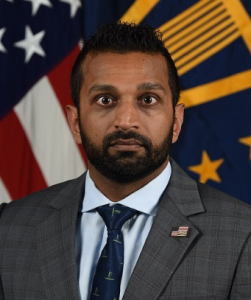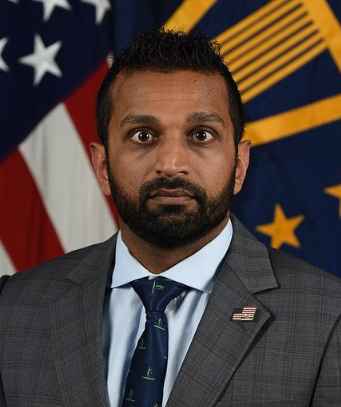In late April 2025, Maryland’s senior United States Senator Chris Van Hollen (D) found himself at the center of a heated legal and political controversy. Van Hollen traveled to El Salvador to petition for the return of Kilmar Abrego Garcia, a Salvadoran national deported from the United States on the grounds of alleged membership in the transnational gang MS‑13. His trip, undertaken without State Department or White House approval, has drawn scrutiny under the Logan Act (1799), a scarcely enforced statute that forbids private American citizens from negotiating with foreign governments on matters involving U.S. policy.
Critics contend that Van Hollen’s actions represent an overreach of congressional authority—an unauthorized diplomatic foray better reserved to the executive branch. Supporters argue that as an elected legislator charged with constituent service, Van Hollen exercised long‑standing congressional prerogatives. This dispute has reignited debate over the separation of powers in American foreign affairs, the constitutionality and enforceability of the Logan Act, and the potential double standard exemplified by the Michael Flynn investigation.
This in‑depth examination will:
-
Detail the circumstances and objectives of Senator Van Hollen’s El Salvador trip
-
Explain the Logan Act’s origins, text, and historical enforcement record
-
Review analogous incidents, including the Michael Flynn case
-
Analyze the legal arguments for and against Van Hollen’s liability under the Logan Act
-
Discuss the ethics complaint and political fallout
-
Assess separation‑of‑powers considerations and constitutional protections
-
Summarize the Biden administration’s response
-
Evaluate Van Hollen’s defense and motivations
-
Consider likely outcomes and broader implications for U.S. diplomacy
I. Senator Van Hollen’s Unauthorised Mission to El Salvador
A. Background and Purpose of the Trip
Senator Chris Van Hollen, a member of the Senate Foreign Relations Committee and a senior Democrat from Maryland, embarked on a private trip to San Salvador in mid‑April 2025. Van Hollen’s stated objective was to advocate for the case of Kilmar Abrego Garcia, a Salvadoran national who U.S. immigration authorities had labeled an MS‑13 affiliate and subsequently deported.
Abrego Garcia’s deportation stemmed from evidence presented in U.S. immigration court linking him to the Mara Salvatrucha (MS‑13), which the Trump administration designated a transnational criminal—and, by some arguments, quasi‑terrorist—organization. Deportation orders were based upon witness testimony, intercepted communications, and alleged participation in violent acts. His family and legal advocates have maintained that the evidence was circumstantial and argued that Abrego Garcia’s due‑process rights were compromised.
Van Hollen’s office characterized the trip as a “constituent service mission”—a response to appeals from Maryland residents, including members of the state’s sizable Salvadoran‑American community, who believed Abrego Garcia’s case warranted reexamination. The senator’s delegation reportedly met with senior Salvadoran officials, including representatives from the Foreign Ministry and the Office of the President, to request humanitarian consideration and the possibility of judicial review in U.S. immigration channels.
B. Lack of Executive Branch Authorization
Unlike formal congressional delegations (CODELs) or sanctioned fact‑finding missions coordinated through the State Department, Van Hollen’s journey was neither cleared by the White House nor formally endorsed by the Department of State. Press Secretary Karine Jean‑Pierre later confirmed:
“The administration did not authorize or coordinate Senator Van Hollen’s trip. Immigration enforcement and diplomatic negotiations are conducted through established executive‑branch channels.”
This admission fueled criticism from Republican lawmakers and conservative commentators, who argued that by directly petitioning a foreign government on an immigration enforcement decision, Van Hollen effectively conducted parallel diplomacy—raising potential Logan Act concerns.
II. The Logan Act: Origins, Provisions, and Enforcement History
A. Historical Context and Statutory Text
Enacted in 1799 during President John Adams’s administration, the Logan Act (1 Stat. 613) was a reaction to Pennsylvania physician‑turned–senator George Logan’s unauthorized peace mission to Revolutionary‑era France. Logan, carrying a letter from then–Vice President Thomas Jefferson, negotiated informally with French Foreign Minister Charles Maurice de Talleyrand in an effort to ease tensions in what became known as the Quasi‑War. Fearing that private interventions undermined official U.S. diplomacy, Congress barred any “citizen . . . without authority of the United States [from] directly or indirectly commenc[ing] or carry[ing] on any correspondence or intercourse with any foreign government . . . with intent . . . to influence the measures or conduct of any foreign government . . . in relation to any disputes or controversies with the United States . . . or to defeat the measures of the United States.”
Violators face fines and imprisonment of up to three years. The key elements of a Logan Act violation are:
-
Actor: Any private U.S. citizen (or citizen acting beyond official authority).
-
Communication: Correspondence, intercourse, or negotiation with a foreign government or its agents.
-
Intent: Purpose to influence foreign measures or conduct concerning disputes with U.S. policy, or to “defeat the measures of the United States.”
B. Enforcement Record
Despite its severe penalties, the Logan Act has never led to a successful conviction. Only one individual—John Turner, in 1803—was indicted; however, charges were dropped before trial. Since then, no recorded prosecutions have reached verdicts, though numerous public figures have faced Logan Act accusations in political discourse:
-
1984: The Reagan administration considered charges against civil‑rights leader Jesse Jackson for his peace mission to Syria.
-
2007: Republicans accused Speaker Nancy Pelosi of Logan Act violations after her meeting with Syrian President Bashar al‑Assad.
-
2015: Democrats alleged that a letter signed by 47 Senate Republicans to Iran’s leadership breached the Logan Act during nuclear negotiations.
-
2017: FBI investigations into incoming National Security Advisor Michael Flynn included potential Logan Act implications for his communications with Russia’s ambassador.
Legal scholars widely regard the Logan Act as a “dead letter” due to constitutional challenges—especially the First Amendment’s free‑speech guarantee and the Speech or Debate Clause’s legislative immunity—and the executive branch’s reluctance to provoke inter‑branch conflicts by prosecuting elected officials.
III. The Michael Flynn Parallel and Partisan Dynamics
A. The Flynn Investigation
In December 2016, General Michael Flynn (ret.), President‑elect Trump’s incoming National Security Advisor, engaged in discussions with Russian Ambassador Sergey Kislyak. The phone calls included references to lifting Obama‑era sanctions on Russia, prompting FBI and Department of Justice scrutiny. Notes from an FBI meeting on January 4, 2017, noted Vice President Biden’s mention of the Logan Act as a possible charge against Flynn. Although the FBI ultimately shifted the investigation to false‑statements charges, Flynn pleaded guilty—later withdrawing his plea—and became a lightning rod for claims of politically motivated law‑enforcement overreach.
B. Accusations of Partisan Selectivity
Conservative commentators cite the Flynn case as evidence of a partisan double standard. Roger Stone, a longtime Trump ally, tweeted:
“Why has Senator Van Hollen not been arrested for violating the Logan Act? It’s illegal to conduct your own foreign policy.”
WMAL host Vince Coglianese echoed the comparison:
“Is Chris Van Hollen violating the Logan Act? This is exactly what they accused General Flynn of doing—unauthorized diplomacy before official transition.”
These parallels have fueled calls from some Republicans for equivalent enforcement against Van Hollen, while Democrats dismiss the comparison as inapt—pointing out Flynn’s high‑level transition status and national security role versus Van Hollen’s constituent advocacy on immigration.








